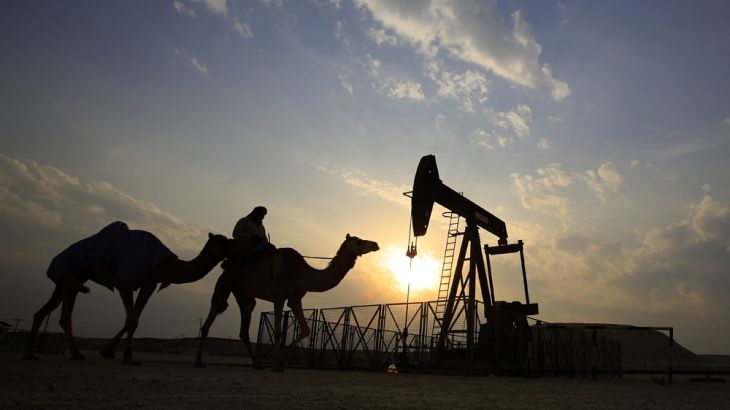
Oil alliance: A new era for oil?
We examine new challenges facing the market just as OPEC and other oil-producing nations put aside their differences.
It’s been a dramatic end of the year for the oil industry. An unlikely alliance between OPEC and non-OPEC nations, a game-changer for petro-diplomacy, has been formed for the first time in 15 years.
On November 30, the Organization of Petroleum Exporting Countries (OPEC) surprised everyone by agreeing to a landmark deal to limit production. And now, Russia, Kazakhstan and other producers who are not in the cartel also signed on.
Keep reading
list of 4 itemsIndia-Iran port deal: A gateway to Central Asia or a geostrategic headache?
India’s income inequality widens, should wealth be redistributed?
Facebook, Instagram face EU scrutiny over addictive effects on children
Starting in January 2017, 2 percent of global oil production will be cut.
But there’s more to the oil market than supply. On the other side of the oil equation is slowing demand – and analyst say that demand could rise at its slowest pace since 2014. Emerging economies aren’t consuming oil like they used to, and higher US interest rates along with higher prices at the pump could also affect demand.
However, Richard Mallinson, analyst and partner at Energy Aspects, believes that “global demand is still looking healthy. It slowed down from the bumper rates of 2015, but we’re growing by over a million barrels a day and this year I think we’ll grow by a similar amount in 2017. We will see some effects at the margins, if oil prices continue to rise, but the main drivers here are the expanding middle classes in Asia and countries like India, and that demand is relatively inelastic – it’s going to come even at higher prices.”
Asked if oil producing countries stick to the production cuts and targets they’ve agreed on, Mallison says: “The history of compliance isn’t amazing and the market would be foolish to think that we’ll get everything that’s been promised in terms of cuts. But I think we will see a reasonably good level, in particular from Saudi Arabia and the other GCC countries, I think they will live up to their commitments.”
So does the historic agreement mark a new era for oil? And what will it mean for consumers across the globe, shale producers in the US and the oil market?
“It’s always risky to try and classify eras. The point is, for the last couple of years, oil prices have been too low to produce enough oil in the future. In the short term, we’ve been oversupplied, but the problem has been we haven’t been investing enough to meet future demand. They’re now going to rise up to levels that do encourage more investment. The question is if along the way we’re going to have a sharp price shock. Saudi Arabia and other OPEC members, of course, wanted to get high revenues, they wanted to balance their own budgets, but I think they’re also worried about the market remaining undersupplied, underinvested, and actually creating a shock later in the decade. So the question is, how high do we need to go to bring investment back outside of the US,” says Mallison.
Meanwhile, Rex Tillerson, the CEO of the world’s largest listed oil company, ExxonMobil, is the top pick for the next US secretary of state. Tillerson joins other CEOs in filling up US President-elect Donald Trump’s administration. But is what’s good for ExxonMobil good for the US? Rob Matheson reports.
Also on this episode of Counting the Cost:
The millennial economy: The millennials, who currently stand at 1.8 billion, are the last generation born in the 20th century, entering adulthood in the year 2000. They are the most digitally-connected generation, and by 2025, according to Forbes, millennials will make up 75 percent of the global workforce. But can they change the way we work in the future? Andrew Phipps, head of EMEA Retail Research, CBRE, discusses the effect millennials are having on the economy.
Austerity in Brazil: Brazilians went to the streets protesting against their Senate’s approval of cutting government spending. The United Nations has called it an attack on the poor and the most socially regressive austerity package in the world. Monica Villamizar looks at the effect a 20-year freeze on public spending is already having on the country’s underfunded health services.
Disney’s Star Wars gamble: The latest Star Wars film has been released around the world, and for Disney, which bought the rights for $4bn, the stakes for Rogue One are high. So could this Star Wars spin-off be another money spinner for Disney? And can the Star Wars franchise prove to be Disney’s best investment? Andy Gallacher reports from Orlando, Florida.